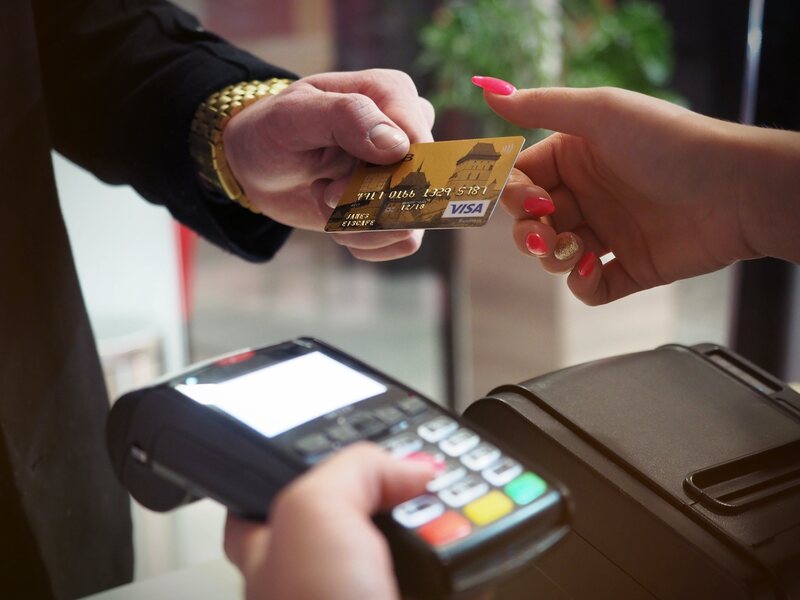The number of credit cards one should have is a question that isn't one-size-fits-all. The answer depends on various factors such as your spending habits, financial goals, and your ability to manage credit responsibly. While some people are better off with a single card, others may benefit from having multiple credit cards. This guide will delve into the pros and cons of both scenarios, aiming to provide you with a clearer understanding to make an informed decision.
The Pros and Cons of Multiple Credit Cards
Pros:
- Rewards and Perks: One of the main benefits of having multiple credit cards is the ability to take advantage of different rewards and perks offered by each card. For example, one card may offer cashback on groceries, while another may provide travel rewards for every dollar spent. By strategically using different cards for different purchases, you can maximize your benefits.
- Credit Utilization: Credit utilization, or the percentage of available credit you are using, plays a significant role in your credit score. Having multiple cards allows you to distribute your expenses across different cards, which can keep your overall credit utilization low and positively impact your credit score.
- Backup Option: In case one of your cards gets declined or lost, having an extra card can be a lifesaver. It's always a good idea to have a backup card, especially when traveling or during emergencies.
Cons:
- Temptation to Overspend: Having multiple credit cards means having access to more credit. This can lead to the temptation of overspending and accumulating debt that you may struggle to pay off.
- Annual Fees: Some credit cards come with annual fees, and having multiple cards can add up to significant costs. Make sure to factor in the annual fees when considering how many credit cards you should have.
- Managing Payments: With multiple credit cards, it can be easy to lose track of due dates and payments. This can result in late payments, which may negatively impact your credit score.
Determining Your Ideal Number of Credit Cards
Deciding on the ideal number of credit cards is a personal decision that should take into account your financial habits and needs. Here are some factors to consider:
Your Budgeting Skills:
If you are disciplined with your budget and pay off your balances in full each month, having multiple credit cards may be beneficial. This way, you can take advantage of the rewards and perks offered by each card without worrying about the interest charges.
Your Credit Score:
If you are aiming to improve your credit score, having more than one credit card can help. By distributing your expenses across different cards and paying them off in a timely manner, you can lower your credit utilization and boost your credit score.
Your Spending Habits:
Analyze your spending habits. If you spend a lot on dining out and travel, a card that offers rewards for these categories could be a good addition. If you primarily spend on groceries, a card that offers cashback on these purchases could be beneficial.
The Fees Involved:
Consider the annual fees of any cards you are considering. If the rewards and benefits outweigh the fees, it might be worth adding to your wallet.
Your Ability:
If you're organized and keep track of your bills, you can manage more than one card. Alternatively, if you struggle with remembering due dates, it's best to stick with a single card to avoid late payments and potential damage to your credit score.
Managing Multiple Credit Cards Responsibly
If you decide to carry multiple credit cards, it's essential that you manage them responsibly to avoid falling into debt or hurting your credit score. Here are a few tips for doing so:
- Set reminders for due dates: With numerous cards, it's easy to lose track of when each payment is due. Set reminders on your phone or mark the dates on your calendar to ensure you never miss a payment.
- Maintain a low credit utilization ratio: Try to keep your credit utilization below 30% on each card. This can positively affect your credit score.
- Pay off balances in full: Aim to pay off your balances in full each month. Carrying a balance can lead to accumulating interest charges and growing debt.
- Use cards strategically: Use each card for the expenses that align with its rewards program to maximize benefits.
- Regularly check your statements: Regularly review your statements to catch any fraudulent charges or errors. This also helps you stay aware of your spending habits.
- Be aware of annual fees: Consider whether the benefits you receive from each card outweigh its annual fee.
When to Consider Reducing Your Credit Cards?
 While having multiple credit cards can have its advantages, there may come a time when it's best to reduce the number of cards you carry. Here are some signs that it might be time to reconsider your credit card lineup:
While having multiple credit cards can have its advantages, there may come a time when it's best to reduce the number of cards you carry. Here are some signs that it might be time to reconsider your credit card lineup:
- Struggling with Debt: If you find yourself struggling to pay off balances on multiple cards or are carrying high levels of debt, it may be best to reduce the number of cards you have. This can help you focus on paying off existing debt without incurring further charges.
- Difficulty managing payments: If you're having a hard time keeping track of due dates and making payments on time, it may be wise to reduce the number of cards you have and stick with a single card to avoid late payments.
- Not utilizing all the benefits: If you have cards that come with annual fees but are not taking full advantage of their rewards and perks, it may be worth considering reducing your credit card lineup to save on costs.
Conclusion
In summary, while multiple credit cards can offer enhanced flexibility, rewards, and security, they also require careful management to avoid potential pitfalls such as overspending and damaging your credit score. Your decision should be based on your personal financial habits, needs, and capabilities. Strategic use, regular monitoring, and disciplined spending are key to maximizing the benefits while mitigating risks. It's not about how many cards you have, but how well you manage them. Remember - credit is a tool; used wisely, it can be beneficial. Misused, it can lead to financial distress.



